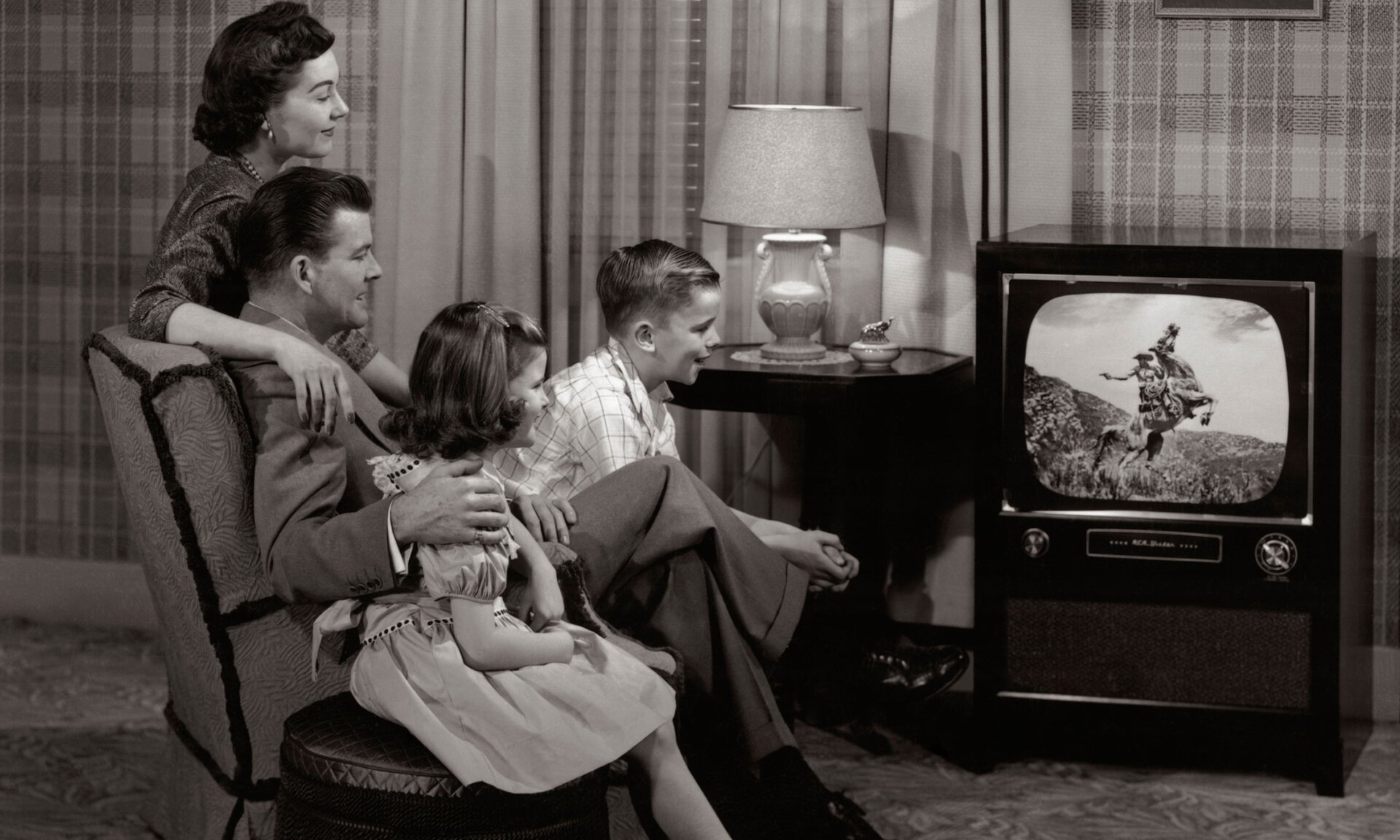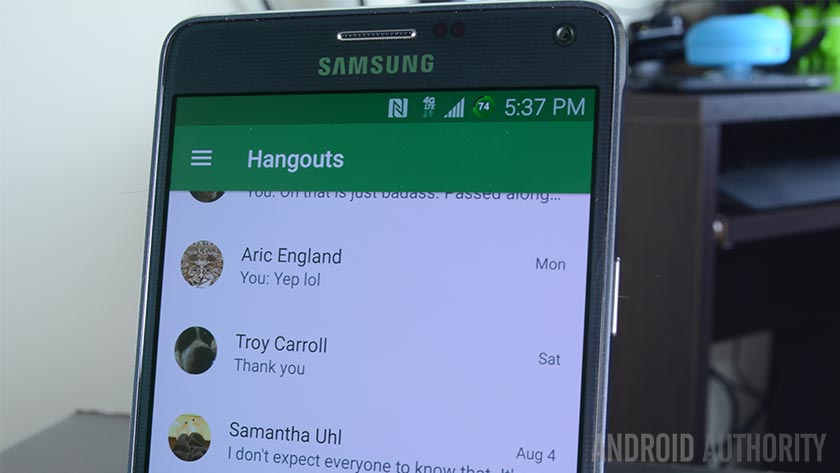Affiliate links on Android Authority may earn us a commission. Learn more.
Smartphones make communication easier, not necessarily better
Published onNovember 16, 2015

Technology has changed the way we think, act and communicate with each other, and that’s not entirely a good thing.
There’s no doubt that the widespread of mobile technology has made communicating with each other much, much easier. Back in the 1950’s, getting a hold of someone meant calling them on their house phone, work phone or visiting them at their home. There were no pagers or mobile phones, and certainly no texting, email or instant messaging of any kind. If these three methods of communication were a no-go for any reason, you’d need to resort to sending a letter… in the mail. Today I wouldn’t wish this fate on my worst enemies, but years ago, it was actually a (somewhat) useful form of communication.
Then our main communication methods began to drastically change around the mid-to-late 90’s. With flip phones from Motorola, candybar phones from Nokia, and very early PDAs from BlackBerry, T-Mobile, Palm and others, it was easier than ever to reach anyone we needed to at any given moment.

We’ve progressed quite a bit since then. Now we have the ability to reach out to one another through text messaging, Facebook, Twitter, Snapchat, Skype, Hangouts and the list goes on. But now that it’s easier than ever to talk to each other as much as we want, are we really getting better at communication?
Before we dive in, we should acknowledge something that’s become all too familiar for most of us. You’re sitting in a room with friends, everyone on their smartphones. You’d like to bring up a conversation topic, but risk getting ignored by your peers because they’re too engulfed in other forms of communication with other people. To get a good idea as to what I’m talking about, be sure to check out comedian and actress Charlene deGuzman’s video entitled “I Forgot My Phone.”
This may be an over-dramatization of what really goes on in our lives, but it’s still difficult to not see what’s happening here. There are too many social networks, too many different forms of communication. To keep up with all of them can be exhausting, and that’s what many of us have fallen victim to over these past few years.
There have been numerous studies that show smartphones are affecting the way we communicate with each other face-to-face. One of which was performed by Shalini Misra, a psychology professor at Virginia Tech in Blacksburg, where she found that in conversations where someone pulled out a smartphone while talking, participants generally rated the conversation as less fulfilling than in conversations where no one pulled out a phone. Misra’s research team writes:
Mobile phones hold symbolic meaning in advanced technological societies. In their presence, people have the constant urge to seek out information, check for communication and direct their thoughts to other people and worlds.
The test consisted of 200 coffee shop attendees which were divided up into pairs. Every pair was assigned either a casual or serious topic to talk about for roughly 10 minutes. Misra’s team didn’t record the content of the conversation, but whether or not a participant would pull out a phone or set one on the table. The researchers reported that someone pulled out a smartphone in 29 out of the 100 groups.
After each conversation, each group filled out a survey describing how close their relationship was, how close they felt to the other person and how well they thought the other person understood them throughout the conversation. In conversations where someone pulled out a phone, participants reported they felt less fulfilled and felt less empathy for the other person, no matter the age, gender, ethnicity or mood of the participants involved. It didn’t matter which conversation topics were discussed, either; all participants said they felt less connected in conversations where someone pulled out a phone.
The researchers also reported that the presence of a phone more negatively affected conversations held between good friends, more so than in conversations held between two strangers.
Cultural norms

As a society, we’ve all ushered in mobile technology with open arms. There’s nothing wrong with that, but it’s a big reason why people think it’s acceptable to spend more time on their phones more often than not. Take, for example, the radio. Back in the 1920’s, radio became a widely accepted form of entertainment for the entire family and ultimately began replacing other forms of social activity.
Then in the 50’s and 60’s, the television came to be. Although not widely adopted until the 60’s (for the most part), the TV eventually became the pinnacle of in-home entertainment. It was completely normal (and still is, for that matter) to sit around the television when eating dinner with the family, when guests are visiting, or when you just need to relax.
Families could still 'spend time together' while watching TV in the kitchen
The TV eventually moved into the kitchen, where families could sit around and spend time watching shows with one another while still “spending time together.” Eventually this became bad manners, so many U.S. families moved the TV back into the living room where it belonged. One could argue that smartphones are similar to TVs in this sense – now that smartphones are affecting the way we act around one another, should it become socially unacceptable to have our phones out around each other?

Not enough real conversation
It’s not a surprise that we’ve fallen deeply in love with these digital communication tools, though some would argue that we’ve completely lost sight of the people behind these tools. Geoffrey Tumlin, author of the wonderfully informative book called “Stop Talking, Start Communicating”, explains that while our mobile communication devices are great, they might not help us out as much as we think they do.
Aside from offering up some helpful communication habits and ways to improve our conversations as a whole, the book also lays out some interesting viewpoints on how our devices are affecting our standard of communication. For starters, he says that just because the technology we use nowadays makes it easier to send a message to someone, that doesn’t mean communicating with them is any easier.
...actually getting the message across is a whole other story
It’s incredible to think about having the ability, at any given moment, to ping someone across the world, no matter what time of day. But actually getting the message across is a whole other story. “We’ve been lulled into believing that communication is becoming easier because technological advances make it easier to send and receive messages,” Tumlin says. “But because our interactions involve quirky, emotional, and sometimes unpredictable people, we can’t eliminate imperfections from communication.” He goes on to say that communication is fundamentally imperfect, and no matter how advanced our devices become, they’ll never be able to eliminate misunderstandings, confusion and errors that occur when people talk.
How many times have you sent a message to a friend and they’ve taken what you have to say the wrong way? This probably happens much more over texting than it does in real life because there’s much more to communication than just getting the message across. Facial expressions, voice inflection, etc, are just a few of the many ways that help us get our point across when talking to someone face-to-face. Sure, there’s FaceTime and Google Hangouts that can be used for quick video chats, but people tend to text each other far more than they video call each other.
Some communication is just plain hard. Like, when we have to communicate bad news, tackle a sensitive topic, or have a conversation to address a difficult problem.So yes, it’s easier to send and receive messages today, but it’s important to remember that communication is as hard, and may be even harder, than it ever was.
It's becoming easier than ever to get distracted
Although our mobile devices greatly simplify the sending and receiving of messages, communication doesn’t just occur when you hit the “Send” button. Tumlin explains, “We want to plow through our inboxes, respond to new text or voice messages as soon as they come in, and get face-to-face conversations over quickly so we can move on to the next thing. The communication tasks that pile up every day make it awfully tempting to fire off quick messages or speak abruptly and think that our work is done.” He adds that if we were to include an extra step – considering whether or not the message is understood – will be able to make us much better at communicating.
Smarter phones don't guarantee smarter communicators.
As technology advances, it’s becoming easier than ever to get distracted. Speaking from personal experience, I’m incredibly distracted by my smartphone way more than I ever was with my old LG flip phone. “Smarter phones don’t guarantee smarter communicators. Better communication happens only when our communication skills improve,” he says.
With the ability to communicate with someone whenever we want, the most important ideas we need to get across to one another tend to get lost in translation – especially when communicating to a wider audience. For instance, saying something to a friend is different than saying something to your entire group of friends. Due to the ease of simply typing out an email and instantly sending it to whomever we’d like, we tend to forget that communicating to multiple people might require some extra thought. “More people means more perspectives to consider,” Tumlin says. “When we fail to account for these additional viewpoints, we run the risk of talking, texting, or typing right past each other, or worse, upsetting someone with a thoughtless message or a hasty reply.” He adds that while it’s not entirely practical (or possible) to think through every possible perspective your friends may have before posting something to Facebook or Twitter, we should still take an extra step to consider what a few people might think.
If you’d like to hear what else Tumlin has to say, I’d definitely recommend picking up your own copy of “Stop Talking, Start Communicating”. You can purchase it from Amazon for just under $16.
Communication has changed, but is it all bad?

Today’s tools help us not only stay in touch with those that would have otherwise been near impossible to reach, such as those halfway around the world, but they make it easier to plan activities, reach out in emergencies, and so much more. It’s obvious that there are tons of benefits to today’s communication tools, and so I am by no means saying that technology is a bad thing, or that we need to stop communicating with one another through our smartphones in any way.
What I am saying, though, is that perhaps instead of relying solely on texting each other, maybe we should be a little more careful about what we’re saying and who we’re talking to. When in a face-to-face conversation, maybe it’s better to turn that phone off, or at least resist the temptation to reach for it immediately.
What are your thoughts? Are smartphones ruining the quality of communication, or are they just enhancing the way we speak to one another? Be sure to let us know your thoughts in the comments below.